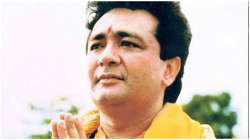Gulshan Kumar murder case: HC upholds acquittal of Ramesh Taurani, confirms conviction of Abdul Rauf Merchant
Gulshan Kumar, also known as the 'Cassette king', was shot dead in August 1997 outside a temple in suburban Andheri. According to the prosecution, his rivals had paid money to gangster Abu Salem to eliminate him.

The Bombay High Court on Thursday upheld the acquittal of film producer and Tips Industries co-founder Ramesh Taurani in the case of murder of music baron Gulshan Kumar in 1997, and also confirmed the conviction and life sentence imposed on accused Abdul Rauf Merchant. A division bench of Justices S S Jadhav and N R Borkar also quashed the acquittal of another accused in the case- Abdul Rashid Merchant, brother of Rauf, and convicted him to life imprisonment.
Gulshan Kumar, also known as the 'Cassette king', was shot dead in August 1997 outside a temple in suburban Andheri. According to the prosecution, his rivals had paid money to gangster Abu Salem to eliminate him.
On April 29, 2002, a sessions court acquitted 18 of the 19 accused. The trial court convicted Rauf under Sections 302 (murder), 307 (attempt to murder), 120(b) (criminal conspiracy), 392 (robbery) and 397 (causing grievous hurt in robbery) of the Indian Penal Code and section 27 (possession of arms) of the Indian Arms Act.
Rauf subsequently appealed against the conviction, while the state government filed an appeal against the acquittal of Taurani.
On Thursday, the high court dismissed the state government's appeal and upheld the acquittal of Taurani.
The bench, however, upheld the conviction of Rauf and also the life sentence imposed on him, but quashed and set aside his conviction under sections 392 and 397.
"The acquittal of another accused Abdul Rashid Merchant is quashed. Rashid is convicted under sections 302, 120(b) of the IPC and section 27 of the Indian Arms Act. The accused is sentenced to life imprisonment. He is directed to surrender forthwith to the trial court or the D N Nagar police station," the high court said in its order.
The bench also said Abdul Rauf Merchant would not be entitled to remission, considering his conduct during the trial.
"The appellant (Rauf) shall not be entitled to remission considering his criminal antecedents and in the interest of justice and public at large, he is not entitled to any leniency,” the court said.
The court noted that after the killing, Rauf had absconded and was arrested only in 2001.
"In 2009, he (Rauf) was granted furlough, but he did not surrender and had to be arrested in 2016 again,” the bench said.
The court said if Rashid fails to surrender, then the sessions court can issue a non-bailable warrant.
